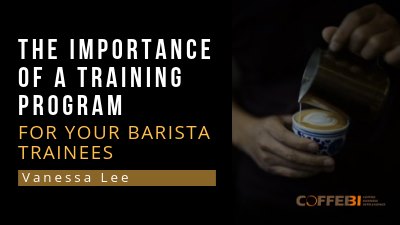6 Secrets For A Coffee Of Quality
Ennio Cantergiani, CoffeeBI’s Opinion Leader and owner of L’Academie du Café in Geneva, Switzerland, started his career by analysing the molecules responsible for the most important off-flavours in green coffees. Today, he is a trainer (AST) for several modules of the SCA program (Barista, Brewing and Roasting).
We asked him for some secrets on quality in coffee.

More and more the coffee industry talks about Specialty Coffee, but what is Specialty Coffee for an expert like you?
There is a strict definition for a coffee to become a Specialty Coffee: >80 points based on the SCA protocol, less than 6 defects and no primary defect, but Specialty Coffee is for me much more than a technical definition based on numbers. Specialty Coffee is taking care of the overall chain, from green coffee to the cup of coffee served to the end-consumer. A Specialty Coffee MUST BE roasted correctly (not dark roasted and not too light roasted !) and MUST BE correctly prepared (espresso or brew method). Education of baristas is therefore very important to improve their knowledge on the overall chain of Specialty Coffee.
Based on your experience, what do end-users know about Specialty Coffee?
Today….nothing, just a few coffee fanatics are aware of the real definition for Specialty Coffee! Confusion still exists today between Gourmet Coffee (recipes based on coffee) and Specialty Coffee. It is the role of trainers to teach the baristas about Specialty Coffee and the role of baristas to teach consumers about it. I think a lot of work remains to do in this specific topic, but things are improving and Specialty Coffee is more and more present in coffee shops.
Let’s talk about quality of coffee (in general, not only Specialty).
What are the main parameters you consider in a blend? And why?
Well coffee blends should be used mainly for espresso preparations. The 70-30 (70% Arabica + 30% canephora/robusta) has been a golden rule for a long time for most espresso blends. I am not so dogmatic as I consider that single origins, 100% arabica could be used for espresso preparations as well.
For an espresso blend, I will look at the percentage of robusta if any, I will look also at the roast level (dark, medium-roast, light roast) and date of roast if it is mentioned. If the origins are mentioned, it would be a positive point.
Robusta: gives more “crema”, more body and more bitterness
Roast level: the darker it is, the more bitter it will be
Roast date: the older it is, the less fresh it will be
Origins: gives an idea of the aromatic
Giving some tips to end-users, which elements should non-professional end-users consider when they buy coffee?
1: how will the preparation be? espresso or brew method ?
2: for espresso: see the answers above, for brew methods: look for single origins, light roasted and traceability (region, farm, variety, process, etc.)
3: roast date
4: packaging: only the necessary coffee for the week or max. 2 weeks
5: only whole beans!
6: food clip or hermetic tool to keep the whole beans away from air, light and humidity after opening
Which of those parameters can non-professional end-users “understand” in a cup of coffee?
Colour, Strength, Taste and Flavour
Colour: the first visual contact will be the “cream” (in the case of an espresso) and its characteristics (colour, unctuosity, etc.). This first impression will strongly influence the quality of the cup.
Strength: strong, viscous and high body. The opposite would be weak, aqueous
Taste: bitterness and acidity
Flavour: standard coffee flavour or more complex flavour
Based on your experience, how do non-professional end-users describe the quality of coffee?
They will basically judge the quality based on “crema”, strength and taste. In some countries, acidity is still not common for coffee while in others, bitterness is not common. So, coffee has a sensorial field where each consumer can find what he is looking for. Nespresso with their more than 20 different capsules is covering the entire sensorial field, in order to cover all consumers over the world and this is brilliant in a strategic point of view.



